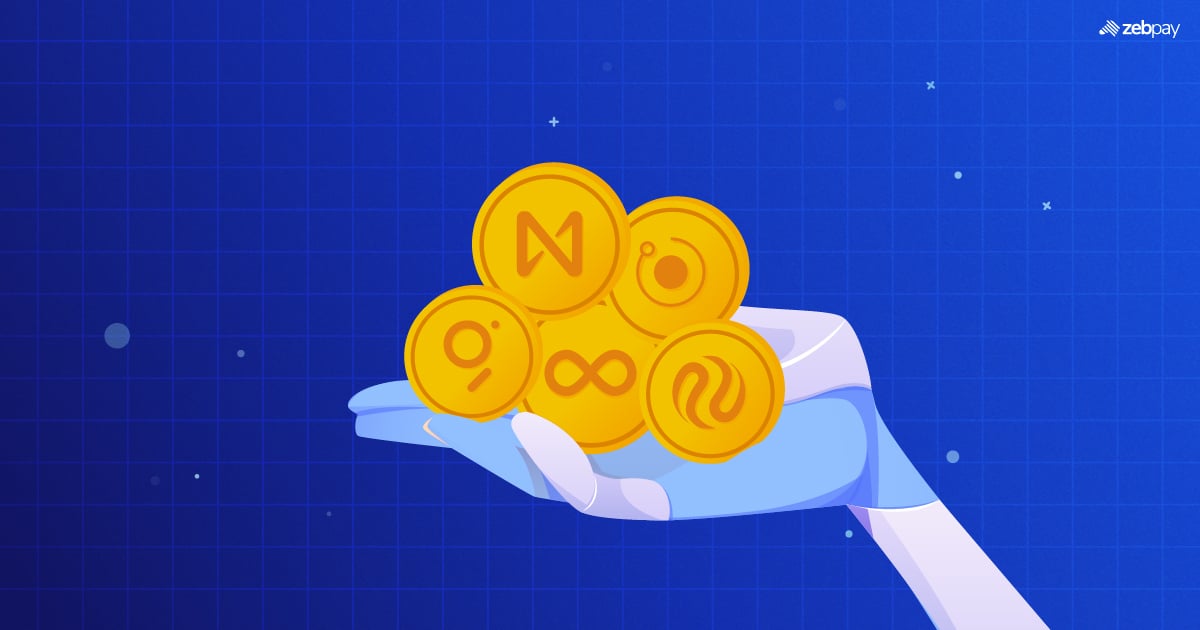Ethereum is one of the most popular blockchains on the market today. From transactions to decentralised applications, it is being used for a variety of purposes. But did you know that Ethereum can also be used to bring about a better tomorrow? In this blog, we explore how Ethereum is being used for social impact, along with covering some of the popular projects.
What is Ethereum?
Ethereum is a decentralised blockchain platform focused on the ease of developing decentralized applications (DApps). Created by Vitalik Buterin in 2015, it has since become one of the most significant blockchain networks in the world.
One of Ethereum’s standout features is the ability to create and execute smart contracts. These are self-executing digital contracts that allow developers to automate several tasks. They form the backbone of all decentralised applications on the network.
What is Ethereum and its Social Impact?
Many businesses choose the Ethereum network to create apps that are safe, fair, and immutable. This is especially helpful when dealing with matters of social importance. When we talk about “social impact,” it refers to actions that can affect the people and the environment around us. Ethereum’s decentralised operation can be really useful for dealing with matters like poverty, corruption, and inequality.
Ethereum Social Impact Projects
Ethereum has been instrumental in helping social impact projects worldwide. These projects are designed to promote social good, create positive change, and help those who are marginalised. Some of the most notable social impact projects on the Ethereum network include:
Giveth
Giveth is a decentralised platform that enables charities to receive and distribute donations transparently and securely. The platform is built on the Ethereum network and uses smart contracts to automate the donation process. Giveth also provides a platform for donors to track their donations and see how they are being used.
Alice.si
Alice.si is an Ethereum social impact platform that focuses on impact measurement and management. The platform enables organisations to track the impact of their projects and provides accountability for donations. Alice.si also uses smart contracts to ensure that donations are used for the intended purpose.
Use Cases for Ethereum in Fields such as Healthcare, Education and Finance
Apart from Giveth and Alice.si, there are many other social impact projects built on the Ethereum network. Here are some notable examples:
Healthcare
In the healthcare sector, Ethereum-based DApps can help create a more efficient and transparent healthcare system. For example, MedRec is a blockchain-based medical record management system that uses Ethereum to store and manage patient data securely and transparently.
Read more: Impact of Blockchain on Society & Healthcare
Education
Ethereum-based DApps can also help improve access to education, especially in underserved communities. One such project is Ujo Music, which is built on the Ethereum network and helps musicians manage their music rights and royalties.
Challenges and opportunities for social impact projects on the Ethereum network

Even though Ethereum can do a lot to help make the world a better place, there are still some problems that need to be fixed. These challenges include scalability, regulation and compatibility. However, the opportunities for social impact projects on the Ethereum network are vast. Through Ethereum’s capabilities, social impact organizations can create innovative solutions that are efficient, transparent, and equitable.
Ethereum Social Impact Funding
If you’re working on a social impact project, funding is crucial. Luckily, Ethereum has made it easier for organizations to receive funding through transparent and secure donation platforms like Giveth and Alice.si. Another option is to use Ethereum’s Initial Coin Offering (ICO) model to raise funds. In fact, the United Nations World Food Programme raised over $1.4 million for Syrian refugees in 2017 through an ICO. If you’re looking for ways to fund your social impact project, Ethereum-based crowdfunding could be a great option.
Ethereum-Based Social Impact Applications
Ethereum-based social impact organisations have the potential to change the way we approach social impact. These applications are designed to be decentralised, transparent, and secure, which helps create trust and accountability in the system.
Examples of social impact applications built on Ethereum
Gnosis Safe is an Ethereum-powered social impact tool that uses smart contracts and multi-signature technology to securely and transparently manage funds. Charitable organizations can use Gnosis Safe to receive and manage donations with confidence.
Importance of decentralisation and trustlessness in social impact applications
Ethereum’s decentralisation and trustlessness make it perfect for social impact applications. By removing intermediaries, Ethereum creates a transparent and secure system that guarantees donations and funds are used for their intended purpose. This makes it reliable for social impact initiatives.
Potential for blockchain-based identity and verification systems to support social impact goals
Blockchain-based identity and verification systems can help organizations give aid and donations to the right people. Ethereum can create a tamper-proof system to prevent fraud and corruption, making sure only eligible individuals receive aid and donations. This improves accountability and reduces the risk of misappropriation.
The Future of Ethereum and Social Impact
The future of Ethereum and its social impact looks promising. As more organisations and developers embrace the network, we will see more innovative solutions. Ethereum’s capabilities can help create more equitable, transparent, and efficient systems that promote social good.
Scalability
One of the biggest challenges for Ethereum has been scalability. However, with the introduction of Ethereum 2.0 and its transition to a Proof-of-Stake consensus mechanism, this is expected to change. This will enable more social impact projects to be built on the network and create a more significant impact.
Interoperability
Interoperability is another area where Ethereum has the potential to make a significant impact. By creating bridges between different blockchain networks, Ethereum can help create a more connected and efficient ecosystem for social impact projects.
Conclusion
Ethereum is a powerful tool for social impact projects, and its potential is only just beginning to be realized. Through the network, organisations can create innovative solutions that tackle the most pressing social issues. While there are challenges to overcome, the opportunities for social impact on the Ethereum network are vast. The future of Ethereum and social impact looks promising, and we can expect to see more groundbreaking projects that create positive change in the world.
You can read more about Web 3.0, Crypto and Blockchain on ZebPay blogs. Join the millions already using ZebPay.







